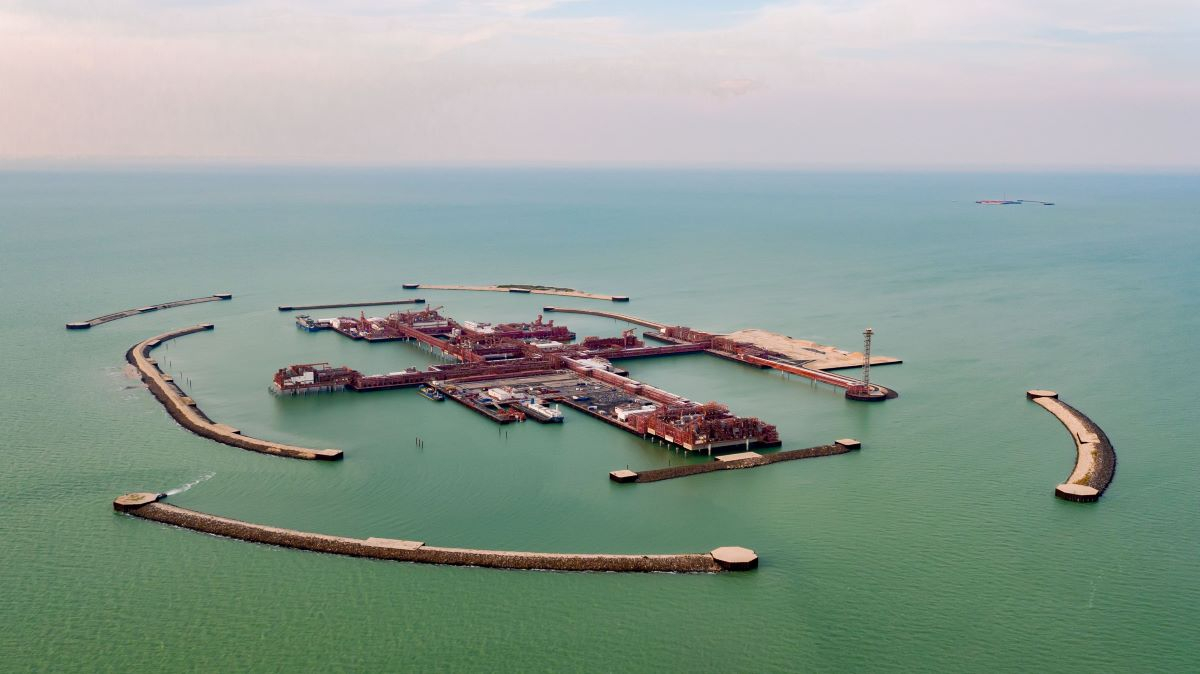The Kashagan offshore oil field, located in the northeastern portion of the Caspian Sea, is at the center of a major legal dispute between Kazakhstan and some of the largest oil companies in the world, including ENI. According to rumors reported by Bloomberg, the Kazakh government has gone as far as asking for up to 160 billion dollars in damages. Given the secrecy of the arbitration, the parties involved are not allowed to reveal many details, but at the roots of the dispute seem to be unfulfilled contractual issues, exorbitant costs, production delays and alleged corruption instances.
The Kazakhstan's compensation request
Hailed by the industry as the largest oil discovery in the last 40 years with an estimate ranging from 9 to 13 billion barrels of recoverable oil, Kashagan is an offshore oil field exploited by the North Caspian Operating Company (NCOC), a consortium project made up of the largest players in the sector such as ENI, Shell, Exxon Mobil, TotalEnergies, the state-owned company KazMunayGas, Japan's Inpex and China's CNPC.
According to the latest statements released on June 6, 2023 by Energy Minister Almasadam Satkaliyev, the Kazakh government has officially requested $16.5 billion in compensation for disputes related to the Production sharing agreement, an agreement between the parties that, among other things, provides that the oil companies involved can deduct some costs from the income before sharing it with the government.
Just over a year later, according to some sources interviewed by Bloomberg, the request for damages has risen to 160 billion dollars, with agreements allegedly tainted by corruption. The companies involved in the case are ENI (which is the operational leader of the consortium) Shell, Exxon Mobil and TotalEnergies. Contacted by Materia Rinnovabile, ENI has confirmed the initiation of the arbitration proceedings by the Kazakh authorities, stating: "We do not believe that the basis of the requests, including the unfounded allegations of corruption, nor the specific compensation amount are reasonably proven or credible".
The Kashagan oil field’s delays and issues
Shyngys Ilyasov, advisor to the head of the Ministry of Energy, had characterized the dispute as one of "commercial in nature" tol be resolved through arbitration. According to Olzhas Baidildinov, member of the Public Council of the Ministry, the amount of requested damages is due to the loss by the government of certain revenues, payments, taxes and investments caused by the delays in production. The NCOC consortium denied all claims, saying the contractors had acted in accordance with the agreements.
Having started production in 2016, about 11 years behind schedule, the North Caspian Project has faced numerous technical and logistical challenges. Due to the low salinity caused by the influx of fresh water from the Volga River, to the shallow waters only four meters deep, and the subarctic temperatures, this part of the Caspian freezes for almost five months a year. Drifting ice and seabed erosion place severe constraints on construction, production and logistics, requiring technical solutions that have slowed the pace of oil extraction.
Although the NCOC consortium celebrated the production of the first 733 million barrels since the consortium's inception in January, the project is still in the early stages of development, with an output of around 137 million barrels per year that does not satisfy the Kazakh authorities. “The government of Kazakhstan is really unhappy with how NCOC is operating,” explained to Materia Rinnovabile Assylbek Jakiyev, president of Petrocouncil, a consultative and cooperation body for the Kazakh oil & gas sector. “The consortium has spent more than 80 billion dollars, which were initially reimbursed by the government. Furthermore, the promise to increase production has not been kept, despite the desire to expand operations.”
For Jakiyev, the 160 billion request reported by Bloomberg is the result of rather generous calculations by PSA, the government agency responsible for protecting the state’s interests in the region. “Between expenses and lost profits, this amount will never be paid by the companies, but it symbolizes the negotiating strength of the new government, which is very different from the previous one.”
Kazakh Environment Ministry's $5 Billion Fine
NCOC and its subsidiaries' troubles don't end there. In 2022, the Atyrau Region's Ministry of Ecology conducted an inspection in Kashagan, finding that the Northen Caspian Project had exceeded sulfur storage limits by more than 1.2 million tons. The department also said that NCOC was not fully implementing its environmental protection action plan: wastewater was being discharged into an evaporation pond without proper treatment and untreated raw gas was being flared without environmental permits.
In 2023, Kazakh authorities imposed a 5 billion dollar fine, but after successfully contesting some of the charges raised by the investigation, ENI and the others are now close to reaching an agreement to avoid paying the entire sum, committing to invest $110 million in social projects and to comply with sulfur storage limits.
This article is also available in Italian / Questo articolo è disponibile anche in italiano
Cover image: the Kashagan offshore oil field © NCOC



